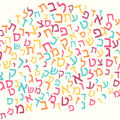 You Know More Hebrew Words Than You Think
You Know More Hebrew Words Than You Think
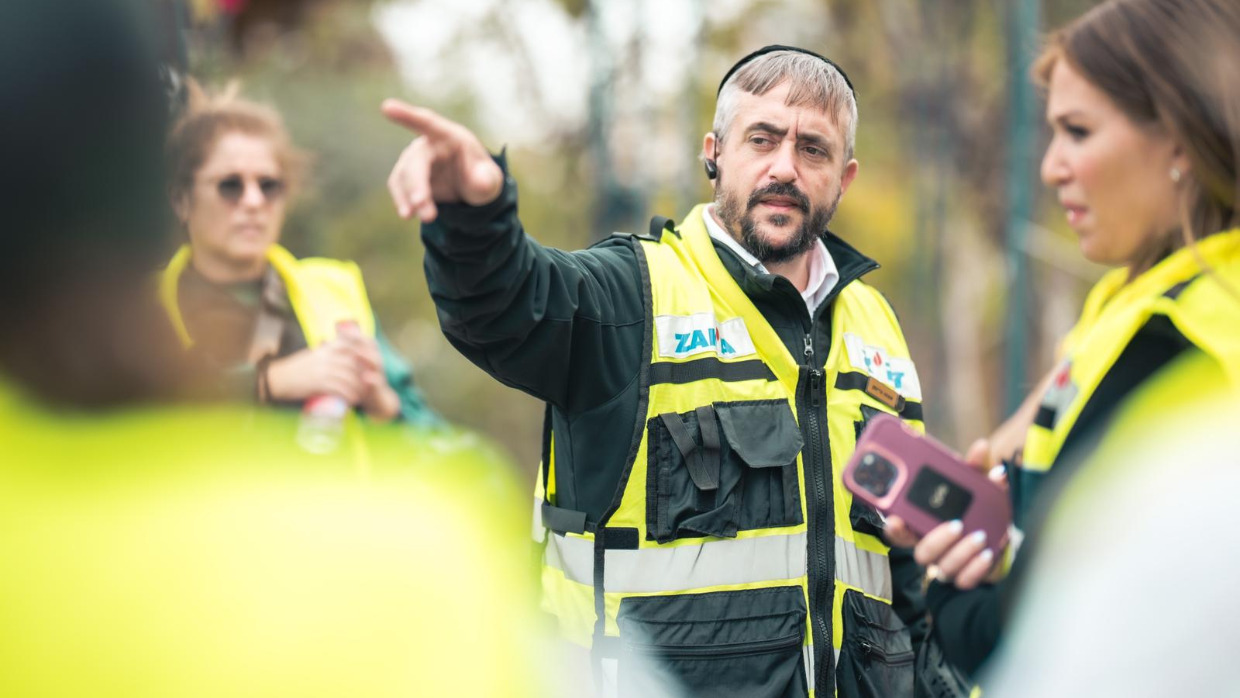

8 min read
Simcha Greiniman, a veteran volunteer for Zaka, witnessed the horror of the Hamas massacre upfront.
In the days following the Hamas brutal terrorist attack on October 7th, Simcha Greiniman, senior volunteer for Zaka International, was charged with collecting the victims’ bodies and body parts in the burned houses and cars in the south of Israel. Having witnessed the horrific sights, he now travels around the world, presenting the hard evidence of Hamas crimes.
For the past 32 years, Simcha Greiniman has been volunteering for Zaka International, a rescue and recovery organization dedicated to identification of the deceased under difficult circumstances and bringing them to burial. Father of five and grandfather of three, Simcha works as a carpenter for his day job, but he is always on call and ready to respond to any emergency.
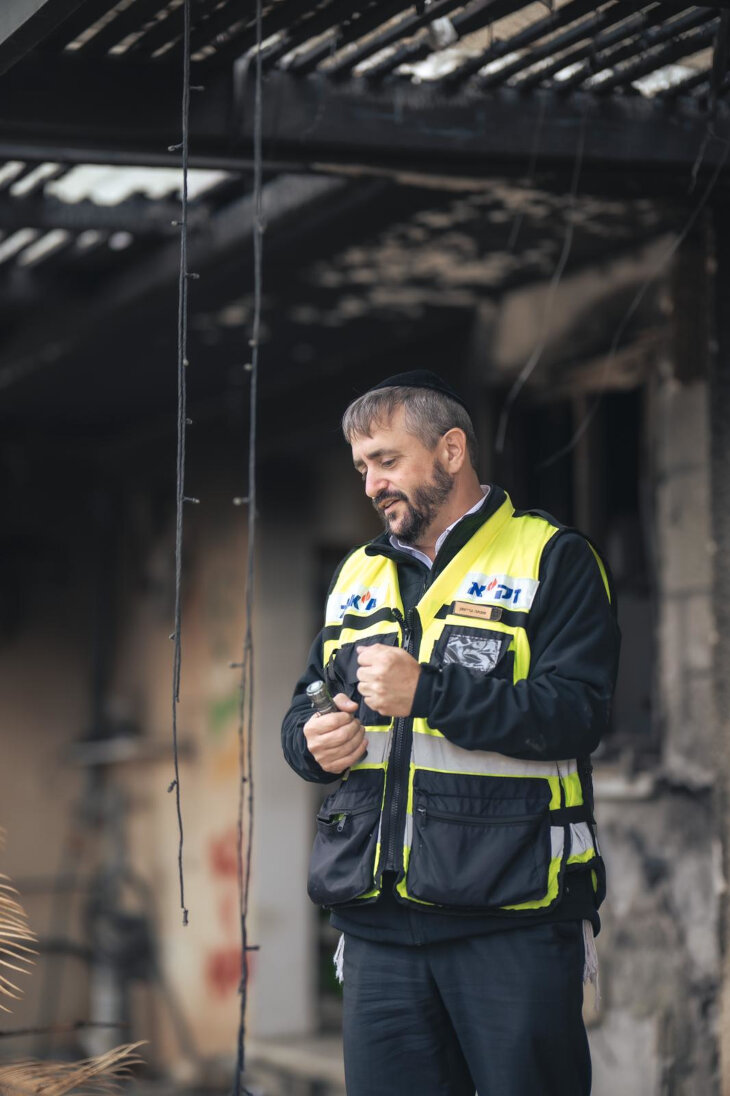
On October 7th, Simcha was celebrating Simchat Torah together with his family in his synagogue in central Israel. At 2:20 PM his phone rang. Because Simcha is a medic, he carries his phone with him 24/7, even on Shabbat and Jewish holidays, and if it rings, he answers.
“That’s when it started,” says Simcha. Until then, his town of Modiin Ilit did not have any sirens and no one suspected that anything was amiss. “I pick up the phone and it’s a major from the army. I served in the IDF search and rescue special forces for 27 years, so I was always connecting the army and Zaka on the scenes. The army asked me to call up about 30 people. I got them ready to go on a bus.” All 30 are Orthodox residents of Modiin Ilit who have served in various IDF special forces.
He went home to inform his wife of the situation. “At 2:45 p.m., a full bus left from Modiin Ilit. I am told that I’m next in line to be called up.” A few hours later, Zaka asked him to come to the scene and bring his large truck, which is generally used to transport equipment, not bodies. Not a good sign.
“I take a group of five people with me, volunteers who are capable of dealing with hard situations, people I can trust to cope with whatever awaited us. We head toward Ashkelon, where we are asked to help at the hospital. On the way, I am told to change direction towards Sderot, further south. The whole time there are sirens and we have to jump out of the truck and lay down on the side. When we get to Highway 34, I stop at the light. I can’t continue driving because I can’t believe what I am seeing. On my right side, I see a car flipped over and bodies outside. On the other side, I see a burnt car and more bodies outside. We wondered if a missile fell there and we had somehow missed a siren.
“I called Zaka right away to ask what was going on and if we should get off the truck and start collecting the bodies. I didn’t want to take any chances of doing something without knowing what we were heading towards. The answer was straight: shut your lights – it was dark already – and whatever you do, don’t stop the truck. They said, ‘If you stay in this position, in the next few minutes you’ll become a target. There are terrorists in the fields around that area, and you better get out of there as fast as you could. Head towards the entrance of Sderot.’
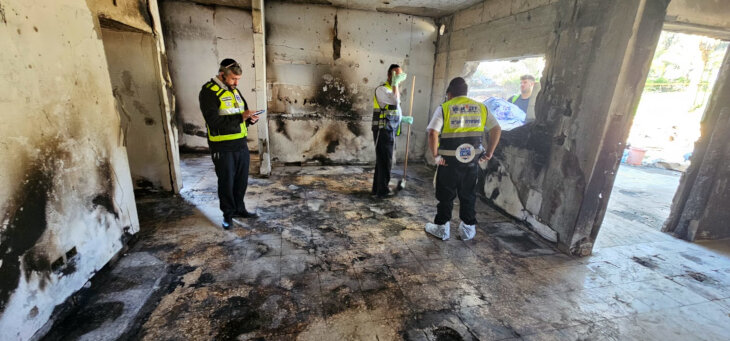
“We drive as fast as we could, driving in between the bodies and the burnt cars. As we get to the entrance of Sderot, we hear massive shooting at the police station two blocks away. Bombing, shooting – it’s crazy what’s going on, and all this under constant missile attacks! Every few minutes you have to jump out and take cover.
“As I park the truck, I see a burnt ambulance and an empty terrorist car with a machine gun on top. On the other side, there is a police tent with a pile of 22 bodies already waiting for me. We are asked to start loading those bodies. We load them. They tell me to take all the bodies now, even though there isn’t room to properly transport them in a dignified manner. This is for two reasons. Number one: if we leave any body, it could be abducted into Gaza. And number two: if we leave bodies outside, we have to leave at least two soldiers to watch those bodies, and they need every soldier to respond to the attack.
“So we make another pile of bodies, and another pile and head back on Highway 34, with four Jeeps with soldiers guarding the truck so we don’t get hit by terrorists. Along the way, we stop to collect more bodies on the road while the police take pictures and collect information.
“At the first car, the two front doors are open and there are no bodies, but there are trails of blood. One goes into the field, another goes to the other side of the highway. We check around and collect those two bodies and we look at the back seats. There are two baby car seats ridden with hundreds of bullets.
“The second car is totally burnt. We see a skeleton, totally burnt. We try to pick up those bones to collect them, and they disintegrate in a second. There’s nothing left, only ashes. That means that the heat in the car reached over 600 degrees Celsius. We have to bring special vacuum cleaners to vacuum every corner of the car and make bags with marks: this came from the front of the car, from the back, right side, left side, clearly marking all the evidence.”
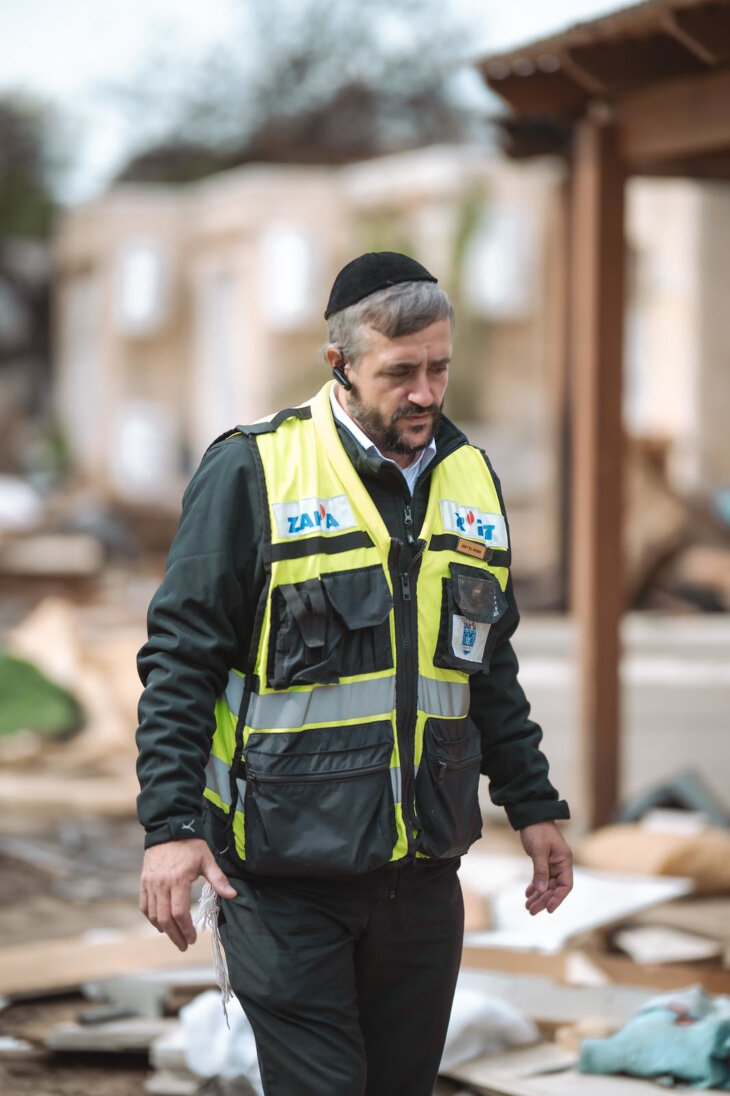
Identifying the remains that disintegrated into ashes posed a problem for the State of Israel, which does not yet possess such technology. The United States built a device for extracting human DNA from ashes following the 9/11 terrorist attack. This device takes seven months to build, and once it’s ready, it takes several months for the extraction process to be completed. Israel is currently building such a device. Meanwhile, many of the bags with ashes were sent to the US for identification, which is still ongoing.
That day Simcha and his team collected 72 bodies. “My truck, from floor to ceiling, was packed with bodies – police officers, soldiers, civilians, and terrorists,” he says.
In the aftermath of the attack, Israelis also collected 1,500 bodies of terrorists. They keep them in the hope of exchange for bodies of Israelis held by Hamas.
Simcha continues, “The next morning, we continue collecting on Highway 232. We are attacked by two terrorists, who shoot towards us. A soldier that is with us gets killed on the spot before both terrorists are killed by other soldiers.”
For the next 18 days, the team continued collecting bodies and body parts in the kibbutzim in the south. They were asked to deal with 1,750 cars that contained human remains. “I worked on these cars one by one,” Simcha says, “making sure every drop of blood came to burial.”
They also went through all the houses in the areas that were attacked. “I know what happened in every house,” he says, “There are no words to explain what we went through, what we dealt with, and what we saw. But I do not know any names. That way I can keep some emotional distance and be able to live with the situation.”
Simcha says, “I got a call from Gilad Erdan, Israel’s ambassador at the United Nations, to come to speak in the UN about women’s rights, about what I saw. I testified about it. The government then took me to speak to the press around the world. I just came back from Washington, D.C. where I met a lot of congressmen. Two weeks ago, I spoke in the Parliament in England, France, and Germany.
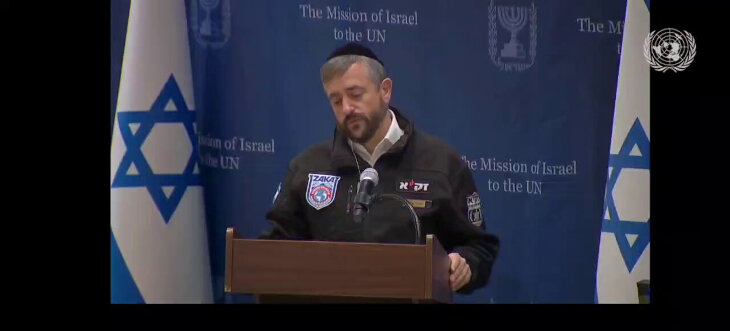
“I do not hold back, like I am doing now, and I give them all the horrific details about what we saw. It took these nations 50 years to deny the Holocaust, but it only took 50 seconds to deny what happened over there. When I bring the hard evidence, no one can face me and say that it never happened. We have all the information, everything is documented.”
How does Simcha deal with such heartbreaking work without falling apart? “It’s not easy,” he says. “My life has a mission – I am here for the Jewish people. It is a merit to help families recover the bodies of their loved ones and help them to reach closure. I am doing something that not everyone is able to do. Thank God, I am able to do it.”
Simcha has risked his life for the sake of this mission. “Firemen run into fires because it’s their mission in life,” he says. “We run into places where we can fulfill our mission.”
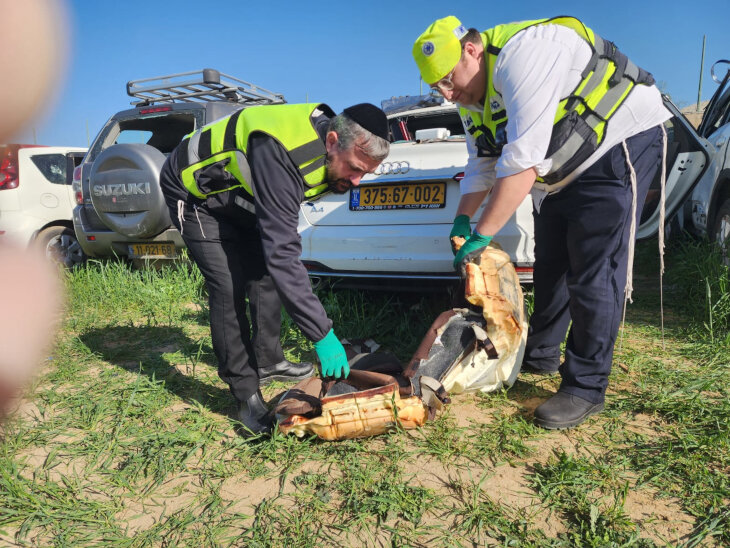
Simcha calls for all the Jews around the world to stay united and to continue praying for Zaka volunteers, emergency responders and soldiers, so that they can all continue their holy work.

I had the honor of standing in line at El Al with Simcha while waiting to board a flight to Tel Aviv a few weeks ago, as he was returning from speaking engagements in the US. Due to delays in boarding we had a chance to chat for a little while. I am in awe of what he and Zaka do. They are the very best of us.
May we all donate to ZAKA'S as I have been proud to do. Their immense courage and strength to fulfill their missions to collect the remains, while taking evidence of the systematic satanic murders to present around the world the truth of Oct. 7th, is evidence that they are all deeply connected to a Divine world that blesses them with strength and purpose, to carry on. Imagine....Unbelievable to witness what they have and still do.
These men are the true heroes of the world.
thank you for this article will share with many people the truth has to come out
I'd like to bless Simchah and all Zaka volunteers and emergency responders not to have to do such a job ever again!
Simcha is a brave man; committed to fighting for
justice, and Zaka - first responders and a call to
holiness. " He watching over Israel neither slumbers nor sleeps." (Psalms or Isaiah ? not sure; but, in the B-i-b-l-e, for sure)
The verse you wrote is from Psalms 121.
May G d bless you with strength and healing and blessed forgetting, and all poor responders as well!
Amen, and thank you!